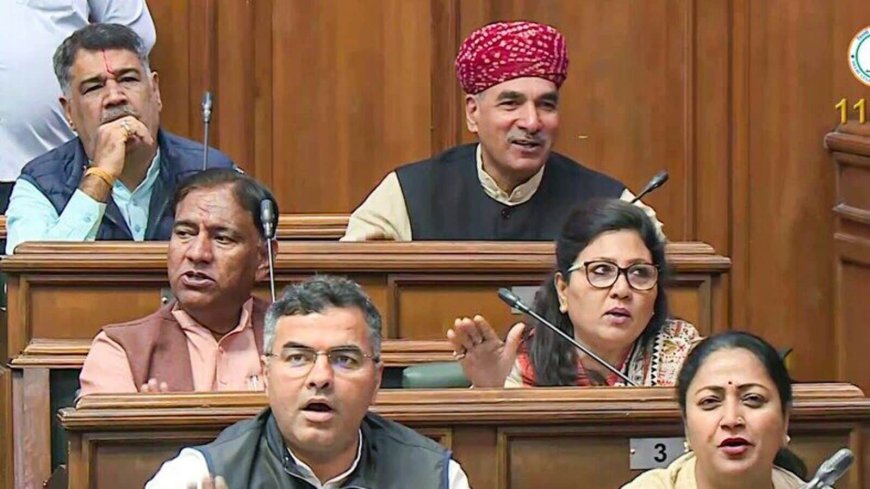Liquor wholesalers posing as retailers? CAG report unveils ‘preferential’ licensing by AAP in alleged Delhi excise scam
The CAG report reveals that the Delhi government's liquor policy favored private wholesalers, leading to losses several thousand crores of rupees. The report highlights violations and relationships between licensees, raising questions about the integrity of the licensing process.

Liquor Wholesalers Posing as Retailers? CAG Report Unveils ‘Preferential’ Licensing by AAP in Alleged Delhi Excise Scam
In a shocking revelation, a recent report from the Comptroller and Auditor General (CAG) has brought to light the controversial licensing practices related to liquor distribution in Delhi. According to the findings, the Aam Aadmi Party (AAP) government allegedly facilitated liquor wholesalers to operate under the guise of retailers, raising eyebrows over the integrity of Delhi's excise policy. This report has significant implications for governance and transparency in the Delhi liquor market.
Understanding the Allegations
The CAG report asserts that several liquor wholesalers have been granted licenses that allow them to function as retailers, which contradicts established regulations. The report highlights discrepancies in the licensing process, alleging that certain individuals and businesses were favored through preferential treatment. This could suggest a major breach of trust and exploitation of the excise system, questioning the motivations behind these licensing decisions made by the AAP government.
Impact on the Liquor Market
The findings from the CAG raise serious concerns about the legitimacy of liquor sales in Delhi. If influential wholesalers are indeed allowed to act as retailers, this could distort market dynamics, leading to unfair competition and possible price manipulation. Additionally, the report indicates that consumers may be adversely affected, potentially leading to increased prices and limited choices in retail outlets. The integrity of the excise revenue collection is also at stake, which is crucial for Delhi's development funds.
Government Response to the CAG’s Findings
In response to the CAG report, AAP officials have refuted the allegations, asserting that all licensing decisions were made in accordance with prescribed regulations. They argue that the excise policy was designed to enhance revenue and ensure quality supply in the liquor market. However, the opposition parties are calling for a thorough investigation into these claims to ensure accountability and transparency within the government.
The Way Forward
As the controversy unfolds, it is vital for the Delhi government to take stringent measures to restore public trust. Recommendations from the CAG must be taken seriously, and a comprehensive review of the current licensing system should be conducted. Furthermore, public hearings can help in understanding community concerns and improving governance in the liquor industry.
Conclusion
The CAG report detailing preferential licensing practices by the AAP government in the liquor sector marks a pivotal moment for governance in Delhi. The potential implications of these findings necessitate urgent action and scrutiny to ensure that Delhi's excise policies promote fair competition and protect consumer interests. For more updates, visit dharmyuddh.com. Keywords: liquor wholesalers posing as retailers, CAG report Delhi excise scam, AAP government licensing practices, Delhi liquor market issues, preferential treatment in liquor licensing, Delhi excise policy controversy, impact on liquor sales, accountability in Delhi governance, CAG findings Delhi, excise revenue implications.







